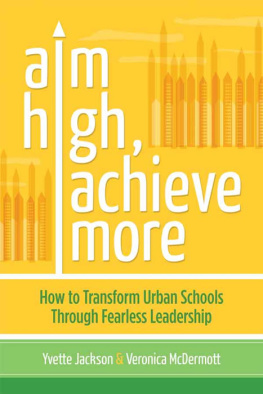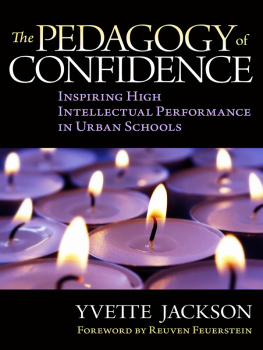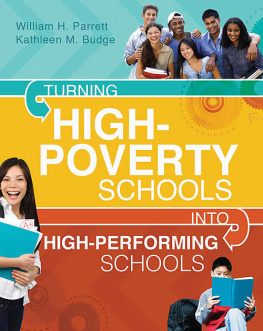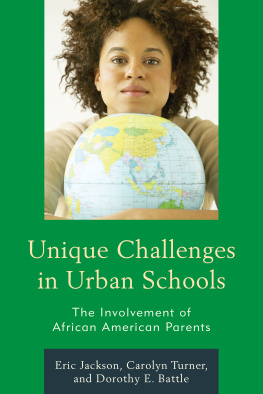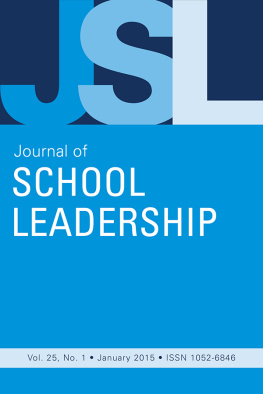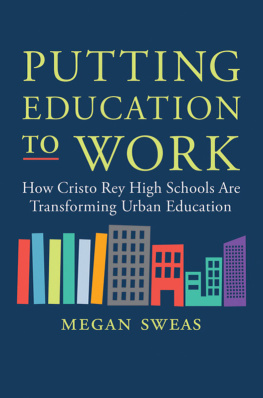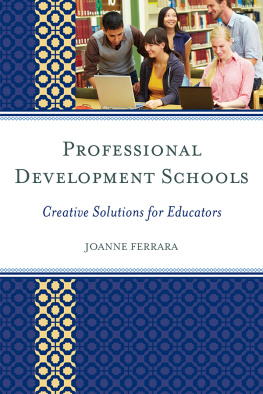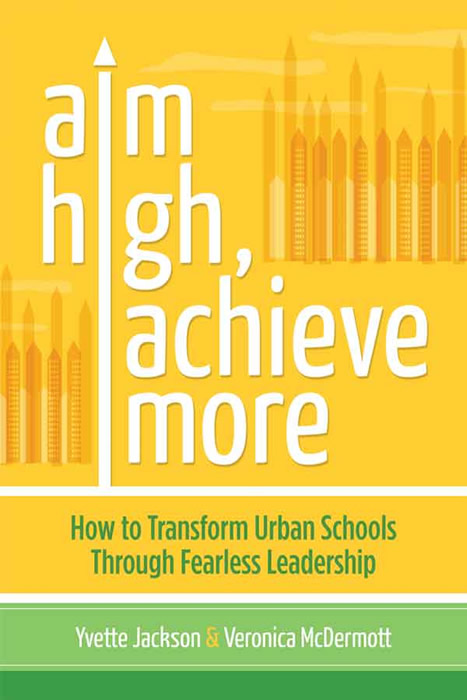Dedication
This book is aboutand forchildren.
It is aboutand forCarlos in San Francisco, Amos in Newark, and Tanesha in Atlanta.
It is aboutand forthe scores of children who live and learn in the deepest recesses of our nation's inner cities and the often-forgotten pockets of rural and suburban poverty.
It is aboutand forstudents who arrive at school carrying bulging backpacks of debilitating obstacles and shattered promises but who want nothing more than to have their hopes sustained and nurtured.
It is aboutand foreducators who refuse to accept the status quo and are searching for ways to transform their schools into oases of success.
Over the years, we have met and worked alongside many educators who struggle to transform the learning lives of students like Carlos, Amos, and Tanesha. These educators and their students have taught us what it means to aim for self-actualization and self-directed learning every hour of every day, even when the odds are stacked against them. The optimism, fortitude, and fearlessness of these educators and students have inspired us.
We dedicate this book to all who have worked on behalf of children, to all who decide to join this movement, and to all the children who will reap the benefits of living their learning lives fearlessly and joyfully.
Acknowledgments
This book is about journeys: the ones we have been on and the ones we are encouraging others to take. As we reflect on the journey that led us to write this book, we recognize the many people along the way who affirmed our efforts, inspired us, and mediated our thinking and behavior. Among these people are the students, teachers, and administrators with whom we have worked. We thank them for providing such clear examples of fearlessness. We also thank all of the regional directors, mentors, and researchers associated with NUA who share with us the vision of founder and president Eric Cooper.
We would not have been able to "aim high" had it not been for the affirmation, inspiration, and mediation of family members who cheered for us on the sidelines when they were not lovingly providing direct support.
* * *
I would like to especially recognize the family members who so often played the role of soul friends, muses, and ministers: my son and daughter-in-law, Liam and Nina, whose affirmations often came with a good dose of humor; my husband, Jim, whose inspiration is driven by his extraordinary capacity to synthesize disparate elements into seamless sense; my daughter and son-in-law, Mairi and Marlon, whose mediation helped me find my voice and took me on incredible journeys into new theoretical and philosophical landscapes, pointing out vistas of ideas I never dreamed I would visit, much less understand or be able to "name" accurately; and my mother and father, who in their own way have been the architects who set the whole process in motion.
Veronica McDermott
I would like to thank my husband and family for the eternal support they give me in undertaking the mission I have dedicated my life to: being the voice for the children in urban school districts.
I continue to thank Reuven Feuerstein for the honor of being his student and for the inspiration and affirmation he has given me over the years and across the many miles to undertake this mission.
Yvette Jackson
Introduction
A different world cannot be created by indifferent people.
Horace Mann
Fearless Leaders
The fearless leaders we knowand we know manyare just like you. They are district office administrators, building principals, coaches, and teacher leaders of various types, some of whom are anointed with titles, many of whom are not. They work in schools under-resourced and overburdened, often located in the deepest recesses of our nation's inner cities, but also found on country roads and suburban lanes. They serve disproportionately large numbers of children who live in poverty, children who come from immigrant families, and children who face racism daily. They are also ordinary educators committed to proving that demographics need not be destiny (Cooper, 2005). If they have given up on anything, it is the false hope that outside resources will ever be directed their way in sufficient amounts to make a difference. Instead, they have mined the resources that exist within their schoolsthe dedication of their teachers, the dreams of their students' families, the deep untapped potential of their students, and their own driving desire to make a differenceand they have created oases of success despite the weight of demographic obstacles and the wreckage outside their doors (Jackson, 2011).
Choose Fearlessness
Educators have two choices: to be fearful or to be fearless. This book is written for those who choose to be fearless, who want to rekindle the passion that brought them to education in the first place, who recognize the power of working with others to create a different world with their students, and who have the stamina to take on a task beset with obstacles, a task likely to draw fire from vested interests, and a task cynics will say is impossible. In other words, this book is a call to action for those committed to creating an oasis of success in what is often the bleak landscape of urban education.
Despite how popular media and many policymakers choose to portray urban education, those of us dedicated to working in urban schools know that there are legions of committed, compassionate, and courageous people who have chosen to provide hope, optimism, and opportunity for students who are made to feel school-dependent.
We deliberately use the phrase "made to feel school-dependent" to amplify the fact that students come to school with an abundance of different forms of knowledge and understanding that become discredited by the types of knowledge that are considered valid by school. In a sense, these students depend on us to help them shatter the notion that they are somehow deficient, when they, like all students, arrive at the schoolhouse door brimming with rich ways of knowing, doing, and being.
As we all know, words matter: language frames the way we see the world and the way the world sees us. We know the transformative, exhilarating, affirming power of the right word said at the right time, as well as the spirit-crushing damage of the wrong word persistently used to set limits on who we are and who we can become. By choosing to call our students school-dependent, we trumpet our recognition of the realities and conditions our students face daily, both inside and outside school (Cooper, 2005).
But there is more. This term reminds us that our role is to bridge the divide that separates students from their birthright: a high-quality education that enables them to realize their vast potential. It renews our original sense of purpose and emboldens us to provide the conditions that will enable all students, not just the lucky few, to reach high levels of intellectual performance and to become self-actualized and self-directed learners (Jackson, 2011). These conditions tap into and develop who students are, instead of forcing them to fit into a system that denies their heritage and ways of being.
You Now Have a Guidebook
Being a fearless leader requires more than just a rekindled sense of passion, faith in your ability to make change, and a heightened sense of urgency to get on with the work; it also requires real skills. Use this book as your guide as you go about turning an underperforming school into an oasis of success. The journey is not meant to be undertaken solo, so we wrote this guidebook to support group investigations. Use it as an open invitation to your staff to join you on this journey of transformation.

